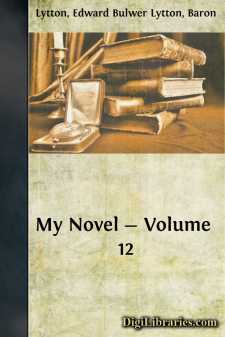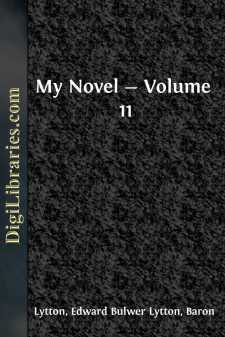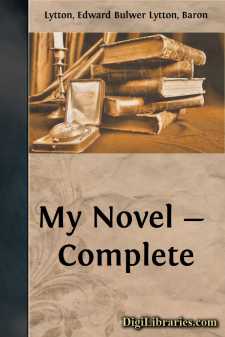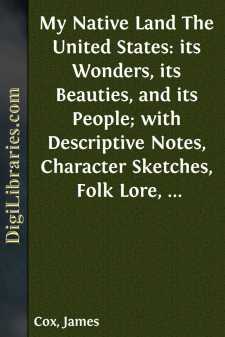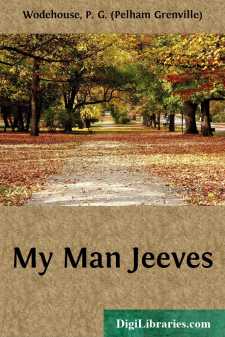Fiction
- Action & Adventure 180
- Biographical 15
- Christian 59
- Classics
- Coming of Age 5
- Contemporary Women 3
- Erotica 8
- Espionage/Intrigue 12
- Fairy Tales, Folklore & Mythology 236
- Family Life 169
- Fantasy 117
- Gay 1
- General 596
- Ghost 32
- Historical 808
- Horror 43
- Humorous 160
- Jewish 25
- Legal 4
- Medical 22
- Mystery & Detective 315
- Political 49
- Psychological 41
- Religious 64
- Romance 159
- Sagas 11
- Science Fiction 730
- Sea Stories 113
- Short Stories (single author) 537
- Sports 10
- Suspense 1
- Technological 8
- Thrillers 2
- Urban Life 31
- Visionary & Metaphysical 1
- War & Military 173
- Westerns 199
Classics Books
Sort by:
CHAPTER XV. The entrance of a servant, announcing a name which Harley, in the absorption of his gloomy revery, did not hear, was followed by that of a person on whom he lifted his eyes in the cold and haughty surprise with which a man much occupied greets and rebukes the intrusion of an unwelcome stranger. "It is so long since your Lordship has seen me," said the visitor, with mild dignity,...
more...
CHAPTER XVII. When the scenes in some long diorama pass solemnly before us, there is sometimes one solitary object, contrasting, perhaps, the view of stately cities or the march of a mighty river, that halts on the eye for a moment, and then glides away, leaving on the mind a strange, comfortless, undefined impression. Why was the object presented to us? In itself it seemed comparatively insignificant....
more...
CHAPTER XXI. Randal's mind was made up. All he had learned in regard to Levy had confirmed his resolves or dissipated his scruples. He had started from the improbability that Pesehiera would offer, and the still greater improbability that Peschiera would pay him, L10,000 for such information or aid as he could bestow in furthering the count's object. But when Levy took such proposals entirely...
more...
CHAPTER XXVIII. There is that in a wedding which appeals to a universal sympathy. No other event in the lives of their superiors in rank creates an equal sensation amongst the humbler classes. From the moment the news that Miss Jemima was to be married had spread throughout the village, all the old affection for the squire and his House burst forth the stronger for its temporary suspension. Who could...
more...
INITIAL CHAPTER —SHOWING HOW MY NOVEL CAME TO BE WRITTEN. Scene, the hall in UNCLE ROLAND'S tower; time, night; season, winter. MR. CAXTON is seated before a great geographical globe, which he is turning round leisurely, and "for his own recreation," as, according to Sir Thomas Browne, a philosopher should turn round the orb of which that globe professes to be the representation and...
more...
by:
James Cox
CHAPTER I. OUR NATION'S BIRTH. The Story of Liberty Bell--Impartial Opinions on the Revolutionary War--The Shot that was Heard Around the World--The First Committee of Safety--A Defeat which Equaled a Victory--Washington's Earnestness--To Congress on Horseback--The First 4th of July Celebration. It was not until April 19th, 1775, that the shot was fired which was "heard around the...
more...
LEAVE IT TO JEEVES Jeeves—my man, you know—is really a most extraordinary chap. So capable. Honestly, I shouldn't know what to do without him. On broader lines he's like those chappies who sit peering sadly over the marble battlements at the Pennsylvania Station in the place marked "Inquiries." You know the Johnnies I mean. You go up to them and say: "When's the next...
more...
by:
Henry Ford
WHAT IS THE IDEA? We have only started on our development of our country—we have not as yet, with all our talk of wonderful progress, done more than scratch the surface. The progress has been wonderful enough—but when we compare what we have done with what there is to do, then our past accomplishments are as nothing. When we consider that more power is used merely in ploughing the soil than is used...
more...
by:
Alexander Irvine
CHAPTER I LOVE IS ENOUGH nna's purty, an' she's good as well as purty, but th' beauty an' goodness that's hers is short lived, I'm thinkin'," said old Bridget McGrady to her neighbor Mrs. Tierney, as Mrs. Gilmore passed the door, leading her five-year-old girl, Anna, by the hand. The old women were sitting on the doorstep as the worshipers came down the lane...
more...
by:
Frances Lambert
To cast on.—The first interlacement of the cotton on the needle. To cast off.—To knit two stitches, and to pass the first over the second, and so on to the last stitch, which is to be secured by drawing the thread through. To cast over.—To bring the cotton forward round the needle. To narrow.—To lessen, by knitting two stitches together. To seam.—To knit a stitch with the cotton before the...
more...


